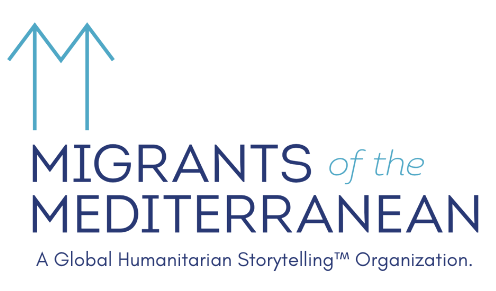Meet Ousmane
Ousmane in at his home in Passau, Germany. 11 July 2020. ©Pamela Kerpius/Migrants of the Mediterranean
by
Pamela Kerpius
Recorded:
5 July 2020
Published:
11 July 2020
Meet Ousmane.
24 years old and from Gambia.
To reach Italy he crossed six countries: The Gambia, Senegal, Mali, Burkina Faso, Niger and the most dangerous of all, Libya.
His journey took three months.
After crossing West Africa via car over the course of some days, he arrived in Niamey, Niger, where he stopped for 2-3 days. He continued to Agadez.
From Agadez, Niger, Ousmane crossed the Sahara desert in the back of a pickup truck with 24 people, himself included. He left with a large container of water that held 5 liters, but it was not enough to make the 4-5 day crossing. The truck stopped from time to time to refill for water, but the well water they found was dirty, and not suitable for human consumption.
“I will never do it again,” Ousmane said about being in the Sahara.
His traffickers stopped briefly in a Niger-Libya border city, where he says hundreds of migrants were collected before the next stage of their journeys. Women there were taken and raped, or sold into prostitution. He said there was “no human value” there, it’s “just your money they need.”
“You have no rights.”
He arrived in Sabha, Libya where he stayed for a few nights, hidden in a compound with hundreds of other migrants. He slept on the floor in a big hall. People were sick, but there was no medicine, no care. Food was scarce unless you could pay for it; traffickers would provide it on a tab to be collected after he left the compound and made the next leg of travel to Tripoli.
It was normal to see people in Sabha carrying guns. He saw many people get shot and wounded.
“You have no rights,” he said.
It took two days to travel to Tripoli. He left in the same pickup truck with the same 23 who accompanied him across the Sahara.
Traffickers brought Ousmane and the others to an unfinished house. There are plenty of unfinished construction projects across Tripoli, he said, and so many of these homes and buildings stood like a basic frame with no construction completed on the inside. The traffickers opened the door, let them in, and locked the door behind them.
He was handed an empty bottle to urinate in, since there were no toilets. Women would be rounded up separately at night and taken out, where they were drugged, raped or sexually abused, or sold into prostitution. He would hear them crying. Many became pregnant, but none knew who the father was. Men were charged 10-15 dinars to have sex with a woman.
There were thousands of women around, he said, “up to 3,000” in the area where he stayed. He said the women were afraid but continued selling themselves in order to survive. “If you don’t do it,” Ousmane said, “they can kill you.”
“I was used to the river in Gambia,
but I never saw anything like the sea.”
He spend two months in the compound in Tripoli. Traffickers would normally take his money and buy food for him, but sometimes he’d go himself, leaving the compound with a friend and hearing gunshots along the way. He’d buy enough food for one or two weeks. Others inside didn’t have as much as him. He’d share his out of sympathy.
“I was used to the river in Gambia, but I never saw anything like the sea,” he said at the Mediterranean shore when he arrived in the coastal camp, Sabratha.
He was there for an afternoon, after being transferred via car from Tripoli. He arrived at 5:00pm. More than a thousand people congregated on Sabratha’s shore. There were 11 lapalapas––the Nigerian slang term for the inflatable rubber boats––queued up for travel that night.
Ousmane crossed the Mediterranean Sea at 11:00pm on in a rubber dinghy with 130 people, including 17 women, some of whom were pregnant; six to 7 kids, and 2 or 3 babies. The woman sitting next to him in the boat traveled with a small baby. People were praying to God. He saw helicopters overhead, then a rescue boat.
He was at sea for four hours before he was saved by an Italian rescue operation in international waters and brought to Palermo. Ousmane landed in Sicily on 4 April 2016.
Ousmane is an amazing human being.

